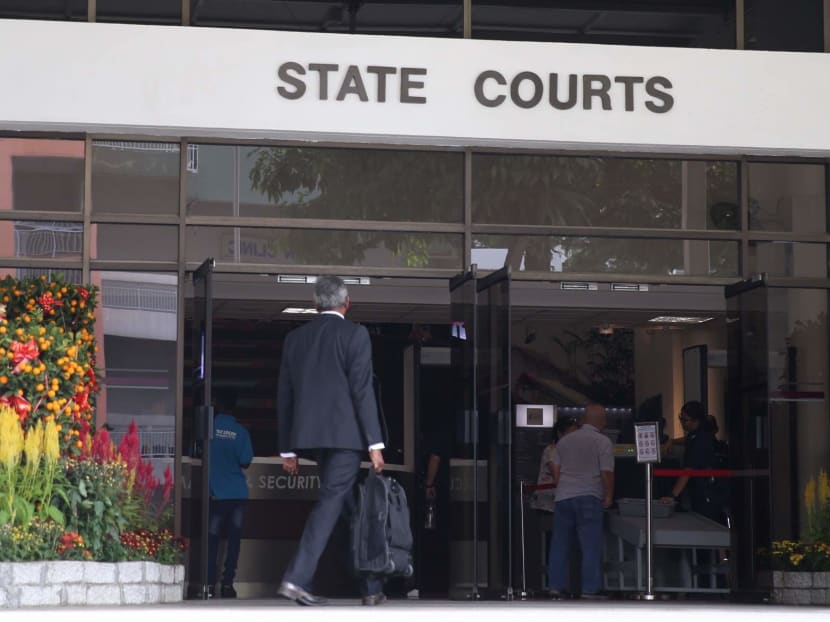Further refinements to Criminal Procedure Code introduced in Parliament
SINGAPORE — The Government has proposed more changes to the recently amended Criminal Procedure Code (CPC), as it introduced a bill in Parliament on Monday (Feb 11) to amend the framework that guides criminal investigations and procedures for criminal hearings such as trials and appeals.

Known as the Criminal Procedure Code (Amendment) Bill, the amendments will “build on earlier changes” to the CPC which were passed in Parliament in March last year, said the Ministry of Law.
SINGAPORE — The Government has proposed more changes to the recently amended Criminal Procedure Code (CPC), as it introduced a bill in Parliament on Monday (Feb 11) to amend the framework that guides criminal investigations and procedures for criminal hearings such as trials and appeals.
Known as the Criminal Procedure Code (Amendment) Bill, the amendments will “build on earlier changes” to the CPC which were passed in Parliament in March last year, said the Ministry of Law (MinLaw).
Here are the key suggestions from the bill, which fall into three broad categories: Investigative procedures, court procedures and sentencing.
SUGGESTED CHANGE #1: Removal of sensitive information from court materials before disclosing to the defence
The proposed amendments to the CPC will give greater clarity to what information can be removed from materials disclosed to defence lawyers in criminal proceedings, or to other persons.
These include information that might prejudice public safety or order, compromise the safety of any persons or the operations of a law enforcement agency, or prejudice criminal proceedings or investigations.
Current mechanisms to safeguard sensitive information include having hearings behind closed doors, or gag orders on identities.
Defence lawyers can dispute the redaction of information and the prosecution will need to justify its reasons for doing so in a separate dispute resolution process.
However, there will be proposed safeguards in place to make sure that accused persons’ interests are not compromised to prevent prosecutors from abusing the process.
SUGGESTED CHANGE #2: Allowing all law enforcement agencies to investigate offences related to video-recorded interviews
Video-recorded interviews were introduced as part of wide-ranging amendments to the CPC last year.
The video interviews complement the existing practice of taking a suspect or accused person’s statement in writing. It is currently done by two law enforcement agencies: The police and Central Narcotics Bureau (CNB).
As part of the changes passed in Parliament last year, safeguards were put in place to prevent unauthorised use of such video footage. New offences relating to the misuse of footage were created when the amendments came into force.
These offences can currently be investigated by police officers.
New amendments, which were a result of feedback during the initial implementation stage, will allow CNB officers to investigate such offences from a CNB investigation, instead of having police officers investigate all offences related to video-recorded interviews.
This will allow for “better resource allocation for such investigations”, said MinLaw.
SUGGESTED CHANGE #3: Removing the possibility of backdating reformative training
Reformative training is a sentence passed on young offenders who commit serious offences.
Before 2018, the courts were only allowed to backdate jail sentences. This meant the court could take into account the accused’s period in remand before a sentence was passed.
In 2018, changes were made to allow jail sentences, corrective training, preventive detention and reformative training to be backdated.
This year’s proposed changes will remove the possibility of backdating reformative training. The other sentencing options will not be affected.
This is done to “preserve the effectiveness of rehabilitation”, as backdating reformative training sentences shortens the time spent in prescribed rehabilitation programmes and may prevent the offender “from completing those programmes as designed”, said MinLaw.
Prosecuting agencies will also work together to ensure a fair balance in the scheme, as concerns have been raised about offenders being disadvantaged if they are remanded for a long period of time.
SUGGESTED CHANGE #4: Expanding the courts’ powers to reopen concluded criminal cases
The CPC was amended in 2018 to provide clarity on the reopening of concluded criminal cases, where all avenues of appeal have been exhausted.
The court that last dealt with the case will hear applications to reopen the case and may extend timelines for filing the necessary documents.
This year’s proposed changes will expand this power to the Supreme Court Registrar, any judge, or Judge of Appeal.
Beyond extending the timeline for a case, the courts can also shorten it.






